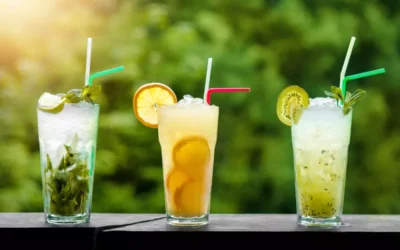Content
Caetano and Clark (1999), for example, found stronger gender norms related to alcohol use in Latino cultures compared with the United States (Kulis et al. 2012). Although traditionally perceived as a “masculine” behavior, binge drinking is now more acceptable among women in certain cultures that foster more balanced gender roles (Lyons and Willott 2008). This suggests that future studies and public health interventions should focus not only on racial and gender discrimination, but also sexual orientation and gender identification. However, Borrell and colleagues (2007) did report an association between discrimination and past-year alcohol use. The mixed results among African Americans may relate more to SES than to discrimination. Past studies suggest that African Americans with higher levels of education were more likely to report experiencing discrimination, whereas the opposite was true among Whites (Borrell et al. 2007; Krieger et al. 1998).

This finding suggests that future studies may need to focus on trajectories of alcohol use to address alcohol prevention efforts. Moreover, retaining culture of origin also has been shown to have protective influences for alcohol use (Schwartz et al. 2012), including protective family and traditional values. Since the introduction of flavored alcoholic beverages in the 1980s, the alcohol industry has engaged in targeted marketing efforts toward youth in general, and especially young women (Mosher and Johnsson 2005). Products with sweet fruity flavors, colorful appearance and packaging, as well as lower alcohol content are designed to appeal to young women. Fruity drinks mask the taste of traditional alcoholic beverages with the sugary flavors of soft drinks (Mosher and Johnsson 2005), making them more palatable for this consumer market.
Signs and symptoms of problem drinking
The social drinkers were also more likely to involve everyone in these conversations. Finally, given the changing demographic landscape of the United States, including a larger and more diverse immigrant population, interventions and treatment social drinking and drinking problem options should also reflect the growing needs of certain groups. Alcohol education programs need to also address individual intent and motivations while offering personalized feedback and protective behavioral strategies (Patrick et al. 2014).
Media exposure helps influence social norms about alcohol through advertising, product placements, and stories in a wide range of sources, including movies, television, social media, and other forms of entertainment. Although alcohol sales and marketing are highly regulated, people are exposed to a wide variety of alcohol and liquor advertisements, especially in the United States. Whether these advertisements directly result in an increase in consumption has been the topic of many public policy debates and much alcohol and consumer research. Recent studies have used robust methodological designs in order to assess the effects of advertisements on alcohol consumption (Grenard et al. 2013; Koordeman et al. 2012). It is likely that the effects of advertisement differ across age groups and races. These factors can result in the onset of drinking and binge drinking, and in increased alcohol consumption (Tanski et al. 2015).
You Continue Drinking After the Social Event Has Ended.
Encourage the person to find healthier ways of coping with life’s problems and rebounding from setbacks without leaning on alcohol. While you can’t shelter your loved one from situations where alcohol is present, you can avoid drinking with or around the person. When you spend time together, try to suggest activities that don’t involve alcohol. When someone spends a lot of time drinking (and recovering from drinking), quitting or cutting down can leave a huge hole in their lives. Encourage your loved one to develop new hobbies and interests that don’t involve drinking. You set out to avoid alcohol at dinner or a cocktail party, but when asked if you’d like a drink, you can always find a reason to rationalize why it’s OK. “Not having control over your drinking is a sure sign there’s a problem.

Some people who engage in social drinking may occasionally become dependent on alcohol. At the same time, some people who are dependent on alcohol may engage in social drinking. There are, however, some key distinctions between https://ecosoberhouse.com/article/how-long-does-weed-marijuana-stay-in-your-system/ social drinking and alcohol dependence. Your loved one’s primary care doctor or GP can evaluate their drinking patterns, assess their overall health and any co-occurring disorders, and provide treatment referrals.
You “Pregame” Before Events or Social Gatherings.
The role of discrimination and stress in health-related risk behaviors, including alcohol use, is well established (Dawson et al. 2005; Hatzenbuehler 2009; Paradies 2006). The stress and coping framework frequently is applied to explain the influence of discrimination and stigma on health (Krieger 1999; Pascoe and Smart Richman 2009; Walters et al. 2002). This long-held theory posits that people consume alcohol to cope with the stress of their daily lives, including work-related stressors and racial and ethnic discrimination (Conger 1956).
What are 3 types of drinkers?
- Social Drinker. The good news is you only drink when you're hanging out with friends.
- Stress Drinker. Everyone gets stressed out sometimes.
- Binge Drinker.
- Self-Medication Drinker.
- High-risk Drinker.
- Drunkorexic.
- Your Drinking Personality.
Alcoholism affects the brain and causes brain damage and memory loss. Getting treatment for alcoholism will help reveal the reason for a person’s alcohol abuse. Just because social drinking sounds less harmful does not mean drinking alcohol is safe.
“When someone realizes they have drank more than they planned to and figure why stop now, that’s usually a sign of alcoholism,” says Alyson Cohen, LCSW, a psychotherapist based in New York City. “Especially if they keep going.” You may also have a problem if you find yourself not thinking about what you drink at all. “Don’t let embarrassment, guilt or stigma keep you from getting the help that you deserve,” Strobbe said. “Alcohol-use disorders are treatable medical conditions.” Making changes early may help you stay ahead of life-altering issues prompted by alcohol abuse, he added. As a result, social drinking could give way to heavier consumption in a short period of time. During Oktoberfest, crowds engage in beer drinking and celebrations.
